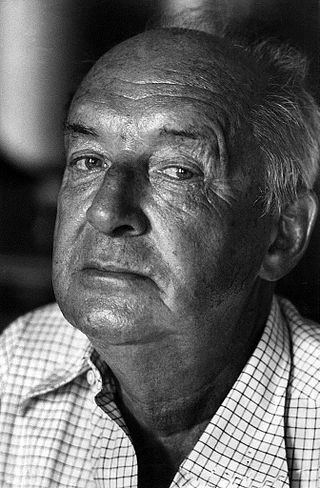
Vladimir Vladimirovich Nabokov, also known by the pen name Vladimir Sirin, was a Russian-American novelist, poet, translator, and entomologist. Born in Imperial Russia in 1899, Nabokov wrote his first nine novels in Russian (1926–1938) while living in Berlin, where he met his wife. He achieved international acclaim and prominence after moving to the United States, where he began writing in English. Nabokov became an American citizen in 1945 and lived mostly on the East Coast before returning to Europe in 1961, where he settled in Montreux, Switzerland.
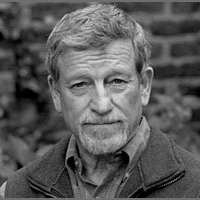
Michael Scammell is an English author, biographer and translator of Slavic literature.
Andrei Platonovich Klimentov, known by the pen name Andrei Platonov, was a Soviet Russian writer, philosopher, playwright, and poet. Although Platonov regarded himself as a communist, his principal works remained unpublished in his lifetime because of their skeptical attitude toward collectivization of agriculture (1929–1940) and other Stalinist policies, as well as for their experimental, avant-garde form. His famous works include the novels Chevengur (1928) and The Foundation Pit (1930).

Boris Nikolaevich Bugaev, better known by the pen name Andrei Bely or Biely, was a Russian novelist, Symbolist poet, theorist and literary critic. He was a committed anthroposophist and follower of Rudolf Steiner. His novel Petersburg (1913/1922) was regarded by Vladimir Nabokov as the third-greatest masterpiece of modernist literature. The Andrei Bely Prize, one of the most important prizes in Russian literature, was named after him. His poems were set to music and performed by Russian singer-songwriters.

Ilya Ilf and Yevgeny Petrov were two Soviet prose authors of the 1920s and 1930s. They did much of their writing together, and are almost always referred to as "Ilf and Petrov". They were natives of Odesa.

Despair is the seventh novel by Vladimir Nabokov, originally published in Russian, serially in the politicized literary journal Sovremennye zapiski during 1934. It was then published as a book in 1936, and translated to English by the author in 1937. Most copies of the 1937 English edition were destroyed by German bombs during World War II; only a few copies remain. Nabokov published a second English translation in 1965; this is now the only English translation in print.
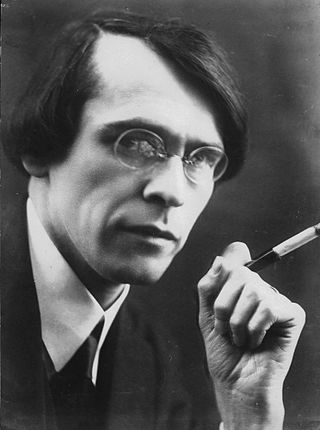
Vladislav Felitsianovich Khodasevich was an influential Russian poet and literary critic who presided over the Berlin circle of Russian emigre litterateurs.

Nina Nikolayevna Berberova was a Russian writer who chronicled the lives of anti-communist Russian refugees in Paris in her short stories and novels. She visited post-Soviet Russia. Her 1965-revision of the Constance Garnett translation of Leo Tolstoy's Anna Karenina with Leonard J. Kent is considered the best translation so far by the academic Zoja Pavlovskis-Petit.
Dmitri Vladimirovich Nabokov was an American opera singer and translator. Born in Berlin, he was the only child of Russian parents: author Vladimir Nabokov and his wife Vera; they emigrated to the United States from France in 1940. He later was naturalized. In his later years, Nabokov translated many of his father's works into other languages, and served as the executor of his father's literary estate.
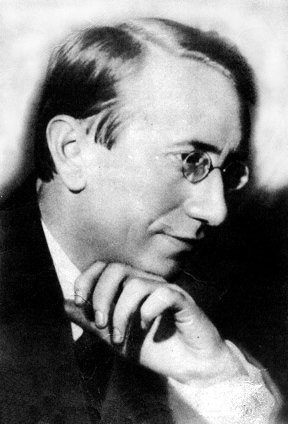
Sigizmund Dominikovich Krzhizhanovsky was a Russian and Soviet writer, playwright, philosopher, and historian, who described himself as "known for being unknown". He published only a few stories and essays in his lifetime; the majority of his writings were published posthumously.

The Eye, written in 1930, is Vladimir Nabokov's fourth novel. It was translated into English by the author's son Dmitri Nabokov in 1965.
Sir George Bailey Sansom was a British diplomat and historian of pre-modern Japan, particularly noted for his historical surveys and his attention to Japanese society and culture.

Andrey Avinoff ; was an internationally-known artist, lepidopterist, museum director, professor, bibliophile and iconographer, who served as the director of the Carnegie Museum of Natural History in Pittsburgh from 1926 to 1945.
"Lips to Lips" is a short story written in Russian by Vladimir Nabokov in Berlin in or about 1931. It was first published in 1956 as part of the collection Vesna v Fialte. After its translation into English by the author and his son it was first published in Esquire in 1971 and then in the collection A Russian Beauty and Other Stories in 1971.
"Terra Incognita" is a short story written in Russian by Vladimir Nabokov that was first published in the émigré journal Posledniya Novosti in Paris in 1931. Translated by the author and his son, the story was published in English in The New Yorker in May, 1963, and later added to A Russian Beauty and Other Stories.

Details of a Sunset and Other Stories is a collection of thirteen short stories by Vladimir Nabokov. All were written in Russian by Nabokov between 1924 and 1935 as an expatriate in Berlin, Paris, and Riga and published individually in the émigré press at that time later to be translated into English by him and his son, Dmitri Nabokov. The collection was published with a foreword by the author in 1976.
This is a list of works by writer Vladimir Nabokov.

Lolita is a 1955 novel written by Russian-American novelist Vladimir Nabokov. The novel is notable for its controversial subject: the protagonist and unreliable narrator, a middle-aged literature professor under the pseudonym Humbert Humbert, is obsessed with a 12-year-old girl, Dolores Haze, whom he kidnaps and sexually abuses after becoming her stepfather. "Lolita", the Spanish nickname for Dolores, is what he calls her privately. The novel was originally written in English and first published in Paris in 1955 by Olympia Press.

The Tragedy of Mister Morn is a verse drama by Russian novelist Vladimir Nabokov. The play is one of his first major works.
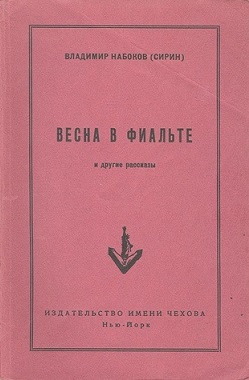
Spring in Fialta and other stories is a collection of short stories by the Russian author Vladimir Nabokov. The collection contains 14 short stories written between 1931 and 1940. The collection of short stories were originally planned to be published in 1939 in Paris however, due to the approach of World War II it became an abandoned project.












